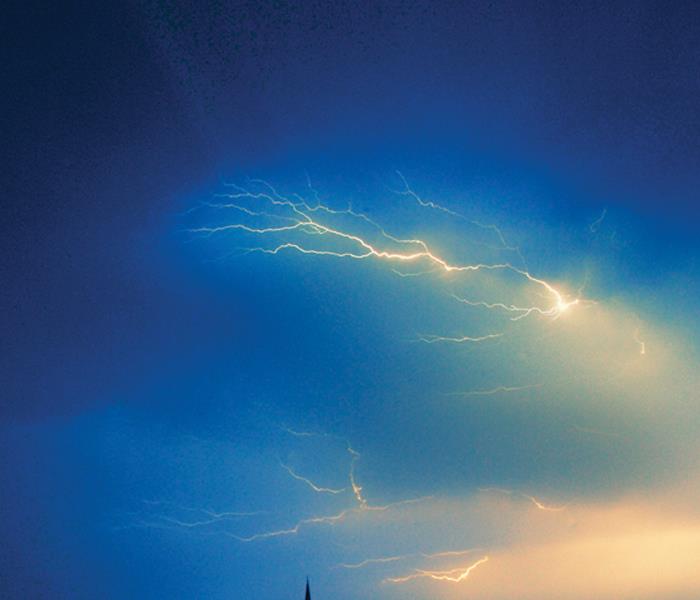Storm Safety
7/24/2020 (Permalink)
Fireworks are not the only thing that light up the sky on warm evenings. Hot, humid weather often presents the ideal conditions for the formation of thunderstorms to form.
The National Severe Storms Laboratory estimates that 16 million thunderstorms occur across the globe each year. The NSSL says that, at any given moment, there are 2,000 thunderstorms in progress. In the United States, eight cities in Florida top the Farmer’s Almanac list for the most thunderstorm-prone areas. The regions’ average conditions can be highly favorable for producing thunderstorms.
Although thunderstorms can be exciting to watch from the safety of indoors, these storms can be strong and dangerous. Thunderstorms are often accompanied by damaging winds and large hail. Thunderstorms can move in very quickly and produce flash flooding conditions. The American Red Cross offers that every thunderstorm produces lightning, which kills more people each year than tornadoes or hurricanes.
Despite advance warnings, people are killed or seriously injured by severe thunderstorms each year. Respecting the power of a thunderstorm can help keep people safe.
- Follow the 30/30 lightning safety rule. When lightning flashes, immediately go indoors if you cannot count to 30 before hearing a thunder-clap. Remain indoors for 30 minutes after hearing the last rumble of thunder.
- Upon hearing thunder, get out of boats, pools and other bodies of water.
- Unplug electronic equipment that may be susceptible to damage from power surges caused by lightning hitting power lines.
- Be sure to have a flashlight and extra batteries handy in the event of a power outage.
- Listen to the local news or NOAA Weather Radio for emergency updates.
- Get to higher ground if flash flooding is possible.
- Avoid contact with plumbing fixtures, as water conducts electricity.
- Do not try to drive during severe thunderstorms. Afterward, do not drive through standing puddles. They may be too deep to gauge.
- Stay away from windows.
- If you are caught outdoors, seek shelter if possible. If shelter is not available, find a low area away from metal areas or tall objects that can attract lightning. Curl into a ball and make yourself as small as possible.
- After the storm, stay away from downed power lines and report them immediately.





 24/7 Emergency Service
24/7 Emergency Service
